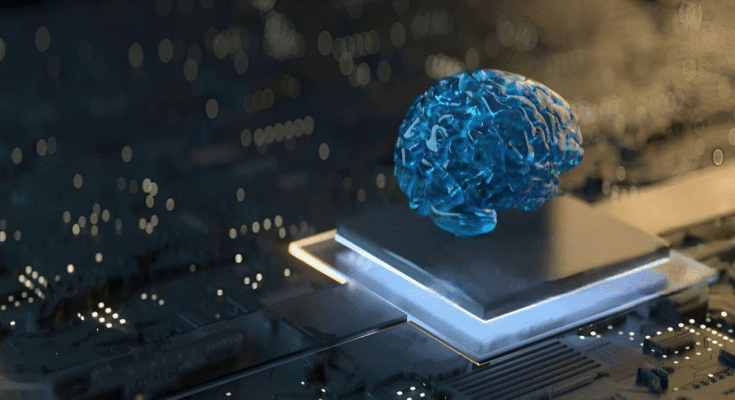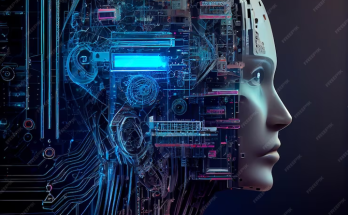In the ever-evolving landscape of technology, two game-changers stand at the forefront: Quantum Computing and Artificial Intelligence (AI). While AI has already transformed our world, quantum computing is on the point of taking computing to new heights. This article explains the thrilling journey to explore how quantum computing will reshape the land of AI applications. Whether you’re a tech enthusiast or just curious about the future of technology, read on to discover the collaboration between quantum computing and AI and how it’s set to redefine our digital universe.
Understanding Quantum Computing
Before we dive into the world of quantum computing and its impact on AI, let’s briefly understand the basics.
Classical computers, which have been the backbone of technology for decades, use bits as the fundamental unit of information, represented as 0s and 1s. Quantum computers, on the other hand, utilize quantum bits or qubits, which can exist in multiple states simultaneously due to the principles of superposition and entanglement.
Imagine a classical computer as a light switch, either off (0) or on (1). Quantum computers, however, are like dimmer switches, capable of blending and overlapping states to perform complex calculations at an unprecedented speed.

The Quantum Advantage for AI
Now, let’s explore how quantum computing is poised to transform AI applications:
1. Speed and Efficiency
Quantum computing’s real power lies in its ability to process vast amounts of data at astonishing speeds. For AI, which often requires complex calculations and data analysis, this significantly accelerates processing times. Tasks that took hours or days can now be completed in minutes or seconds.
2. Enhanced Machine Learning
Machine learning algorithms are the backbone of AI and depend on processing and analyzing large datasets. Quantum computing can facilitate quicker and more precise training of machine learning models. This means improved accuracy in tasks like image recognition, natural language processing, and recommendation systems.
3. Optimization Challenges
Many AI applications involve optimization problems like route planning, supply chain management, and resource allocation. Quantum computing’s ability to explore multiple solutions simultaneously is a game-changer for solving these complex optimization challenges, leading to more efficient and cost-effective solutions.
4. Simulating Quantum Systems
Quantum computing is uniquely suited to simulate quantum systems accurately. This has profound implications for AI in fields like chemistry and materials science, where understanding quantum properties is critical. Quantum computers can provide insights into chemical reactions, drug discovery, and material design that were previously impossible with classical computers.
Challenges and Limitations
While the prospects of quantum computing for AI are undeniably exciting, it’s essential to acknowledge the challenges and limitations:
1. Hardware Constraints
Quantum computers are still in their infancy, and building and maintaining them remains a costly and challenging endeavor. The technology is far from reaching mainstream availability.
2. Quantum Error Correction
Quantum computers are susceptible to errors due to environmental factors, making error correction a significant challenge. Developing efficient error-correcting codes is crucial before quantum computing can fulfill its potential in AI.
3. Algorithm Development
Creating quantum algorithms that can outperform classical counterparts is a complex task. AI researchers and quantum physicists must work collaboratively to develop algorithms that harness the full potential of quantum computing.
4. Security Concerns
Quantum computing also poses security risks. Its ability to crack currently used encryption methods could have far-reaching consequences for data privacy and cybersecurity.
The Road Ahead: A Mutual Relationship
As we contemplate the future of AI in the quantum computing era, it’s clear that the two fields are destined for a symbiotic relationship. Quantum computing’s computational power will revolutionize AI applications, enabling breakthroughs in machine learning, optimization, and the simulation of complex systems.
AI, in turn, will play a vital role in the development of quantum computing. It can be used for error correction, the validation of quantum algorithms, and improving the hardware and software that drive quantum computers.
Conclusion: A Quantum Dive for AI
In a world where data is the new currency, quantum computing and AI fusion represent a quantum leap in technological progress. While there are challenges to overcome and much work to be done, the potential for these two fields to reshape industries, solve complex problems, and enhance our daily lives is undeniable.
As we look ahead, researchers, tech enthusiasts, and policymakers must collaborate and navigate the uncharted territory of quantum computing and AI. The possibilities are vast, and by harnessing the power of quantum computing, we can unlock new realms of discovery and innovation in artificial intelligence.
So, whether you’re a scientist pushing the boundaries of quantum computing, an AI enthusiast, or simply someone curious about the future of technology, keep an eye on this fascinating intersection of quantum computing and AI. The journey has just begun, and the destination promises to be a place where science fiction becomes reality.
In the coming years, the synergy between quantum computing and AI will redefine the limits of what’s possible in our digital universe. Be ready to witness the transformation, as the future is now and it’s quantum.


